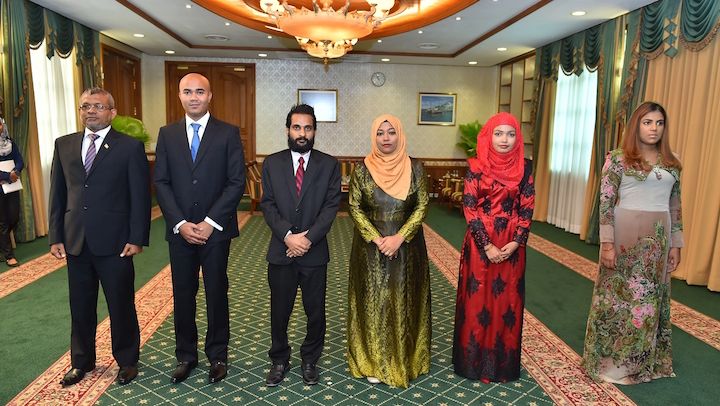Hefty fines imposed on Raajje TV in first anti-defamation punitive action
The broadcasting regulator has slapped an MVR200,000 (US$13,000) fine on the opposition-aligned Raajje TV and an MVR50,000 (US$3,200) fine on a journalist in the first punitive action taken under the controversial 2016 defamation law.

07 Mar 2017, 09:00
The broadcasting regulator has slapped an MVR200,000 (US$13,000) fine on the opposition-aligned Raajje TV and an MVR50,000 (US$3,200) fine on a journalist in the first punitive action taken under the controversial 2016 defamation law.
Failure to pay the fines within 30 days could result in the closure of the station and a jail term of up to six months for the former Raajje TV journalist Aala Ibrahim.
According to a statement issued Tuesday afternoon by the Maldives Broadcasting Commission, a social worker from Addu City complained that a rape victim’s family had accused her on Raajje TV of trying to cover up the rape and influence the police investigation.
The station named Fasohath Hussain in three news bulletins on November 19 without contacting her, which “adversely affected” the social worker and her family, the MBC said.
Become a member
Get full access to our archive and personalise your experience.
Already a member?
Discussion
No comments yet. Be the first to share your thoughts!
No comments yet. Be the first to join the conversation!
Join the Conversation
Sign in to share your thoughts under an alias and take part in the discussion. Independent journalism thrives on open, respectful debate — your voice matters.




